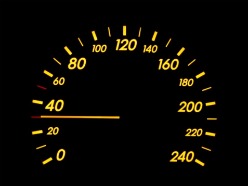
We may soon see intense SEC regulatory actions against large U.S. corporations.
And with a recent poll showing President Obama has lost public confidence on his handling of economic matters, that’s a good thing.
Read: SEC report called “a sham”
Mary Jo White, Obama’s pick to head the SEC, has what some observers call a mixed reputation. Her most recent post at Debevoise & Plimpton showcased her litigation skills, but the role had her acting in defense of major financial firms.
While that certainly makes her nomination palatable to GOP Senate members who consistently look after their friends on Wall Street, there are other sides to her story.
Read: Obama nominates Mary Jo White to head SEC
The woman expected to replace Elisse Walter, the interim chairman who stepped in following Mary Schapiro’s December resignation, appeals to Democrats thanks to a track record of successful prosecutions against fraudsters and terrorists during nine years as a U.S. attorney in Manhattan.
Read: SEC whistleblower awarded $50,000
White’s Senate confirmation hearing last week went off with nary a negative comment, leading most to believe she’ll be confirmed in a walk (dates for Senate votes have not yet been set).
Still, many on the centre and left will be watching for Obama’s second-term Chairman to act where her predecessors failed.
“You have a lot of people thinking the SEC is not doing enough to bring serious pressure to bear on violations of the securities laws,” notes Aegis Frumento, a partner at Stern Tannenbaum & Bell in New York.
The timing’s interesting, given her nomination comes as many top legal minds are publicly calling some major American companies “too big to indict.”
Read: SEC hits NYSE with $5-million penalty
“You can see where the pressures are going to be both politically and otherwise,” says Frumento. “It means [these companies are] too important not to be operating. If they’re too big to fail, they’re too big to shoot.”
History’s full of periods in which governments looked the other way while companies engaged in marginal behaviours, on the theory that the vacuum they’d leave would be more painful – steel makers, railroads, utility and phone companies. Anything deemed essential economic infrastructure can, for a time, get a free pass to commit financial wrongdoing.
Read: SEC charges former bank execs over loan losses
But just because a company is deemed critical, that doesn’t mean any one executive is too important to be indicted.
“The corporation lives. You fine it so the shareholders feel pain, but it doesn’t go under,” says Frumento. “It sends the right message to corporate America: ‘You have enhanced responsibilities because your company is a function of the public trust.’ ”
White could push such a paradigm because she knows both sides. She’s aggressively prosecuted criminals, and also knows the benefits of keeping large entities alive. To that end, she has the ability to reshape the way we think about large companies and their managers.
Frumento notes the demise of Lehman Brothers in 2008 put the rest of the industry on notice. It also put the notion of too big to fail on the map.
Read: Banks are never too-big-to-fail: IIF
And, while nobody wants to see legal actions trigger another Lehman-like failure, he notes it’s perfectly reasonable to go after a CEO for allowing criminality to happen on his or her watch, or creating a corporate environment that allowed it to thrive.
“Mitt Romney said ‘corporations are people too,’ and his argument can go in both directions,” says Frumento. “The Commission has limited resources, so it’s best if it spends time on real stuff instead of small rule-makings. With limited resources, you go after the large targets.”